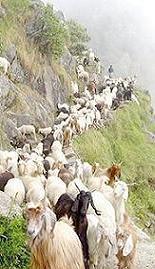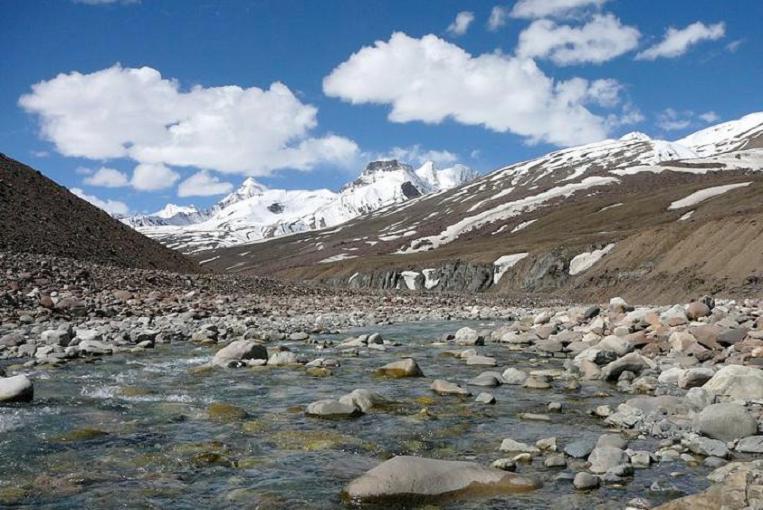Classic Gabdika
Gabdika
A gust of wind sweeps past lush green terraced wheat fields, a Gaddi sits there measuring the weight it carries to force a change of season; the wind hurries up the alpine slopes, a Gaddi sits there on a craggy rock guessing which way his heard would rush on hearing the swirling clouds roar; the wind turns icy as it meets the mighty Dhauladhars, a Gaddi is still there rushing down the crevasses, a little lamb in hands; at 16,000 feet the wind falls flat spreading a veil of eerie silence, a Gaddi tip-toes through it, flute in hand; the wind rushes down the nude slopes, a Gaddi keeps pace to reach home, a bonfire lit with ambers from the hearth that keeps his family warm miles away; the wind has a message to be delivered up in a village, a Gaddi sits there to take the first hint – their flock is safe and so is the tribe.
But that was when the world was not yet a global village… though the Gaddi village is still there, the Gaddi himself fears getting lost.

HABITAT
Historically, Gaddis are known to have occupied one of the most inhospitable geographic regions in the world – highlands in the shadows of the mighty Dhauladhara and the Middle Himalayas.
GENERAL CHARACTER
Historically, Gaddis have been a transhumance tribe and, therefore, share much with similar communities found across the world. However, their inhospitable habitat and livelihood practices have made them evolve as a unique culture, though not really refined in the modern sense.
POPULATION & DIALECT
There is no actual record, whether authentic or otherwise, about the Gaddi population. Due to their migratory living in the past, no census gives any estimate regarding their population. However, a rough estimate can be pegged at around half a million.



